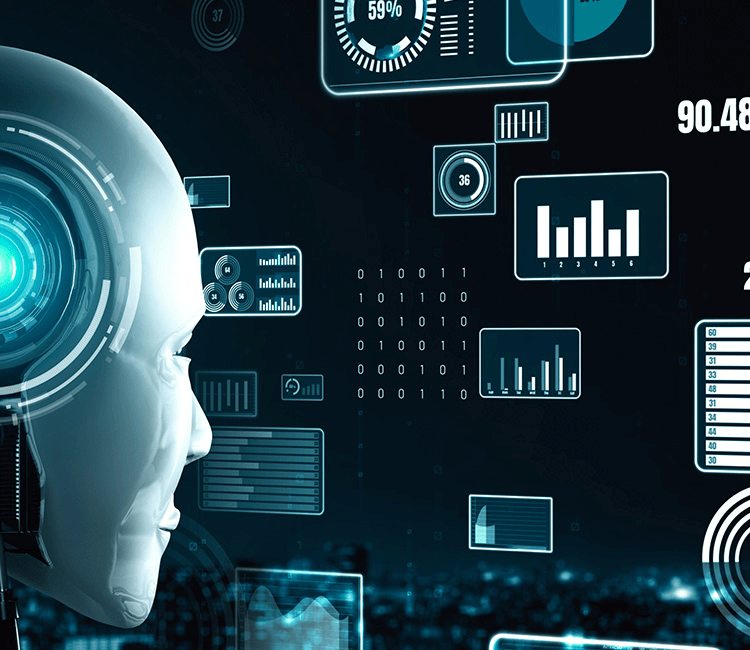Top 9 Quantum Computing Applications in Key Industries [2025]
2025.01.23 · Blog
Quantum computing, often described as the next frontier in computing, leverages the principles of quantum mechanics to solve problems that classical computers struggle with.
The unique properties of quantum bits (qubits), such as superposition and entanglement, allow quantum computers to process vast amounts of data simultaneously, enabling them to perform complex calculations at unprecedented speeds.
As quantum technology continues to evolve, numerous industries are beginning to explore its transformative potential. Below are some of the most promising quantum computing applications.
1. Quantum Computing Applications in Education: Bridging Theory and Practice in Quantum Education
Quantum computing is revolutionizing quantum education by providing tools and platforms that enable students and researchers to explore quantum principles.
Educational-grade quantum computers, such as SpinQ's Gemini and Triangulum series, are compact, portable affordable, and designed to operate at room temperature. These devices make quantum concepts accessible to students, fostering a deeper understanding of quantum mechanics and inspiring the next generation of quantum scientists and engineers.
Use Case
Universities cooperate with SpinQ to integrate educational quantum computers into their curriculum, allowing students to perform hands-on experiments in quantum algorithms and computing.
.png)
2. Quantum Computing Applications in Finance: Revolutionizing Risk Management
The finance industry relies heavily on complex models for risk assessment, portfolio optimization, and fraud detection.
Quantum computers can process large datasets and optimize these models much more efficiently than classical computers. They can also simulate various market scenarios, helping financial institutions make more informed decisions and reducing the risk of large-scale financial crises.
Quantum computing could optimize investment portfolios by evaluating thousands of possible investment combinations simultaneously, leading to better returns and lower risk.
.png)
3. Quantum Computing Applications in Quantum Machine Learning: Enhancing AI Capabilities
Quantum computing has the potential to significantly boost the power of machine learning (ML) models.
Classical machine learning algorithms require vast amounts of data and computational power to identify patterns and make predictions.
Quantum computers can speed up these processes by leveraging quantum parallelism, allowing them to explore a larger space of possible solutions simultaneously. This could lead to breakthroughs in areas such as natural language processing, image recognition, and predictive analytics.
Use Case:
Learn more about SpinQ's AI-based Quantum Solution

4. Quantum Computing Applications in Drug Discovery and Healthcare: Accelerating Innovation
In the pharmaceutical industry, quantum computing offers the potential to revolutionize drug discovery by simulating the behavior of molecules at a quantum level.
Classical computers often struggle to model complex molecular structures, making it difficult to predict how new drugs will behave. Quantum computers, however, could perform these simulations much more efficiently, allowing researchers to design drugs more effectively and speed up the process of bringing life-saving treatments to market.
Use Case:
Quantum computers could simulate protein folding, which plays a crucial role in understanding diseases like Alzheimer's and Parkinson's. By understanding the quantum behavior of proteins, quantum computers could enable more accurate drug targeting.

5. Quantum Computing Applications in Cryptography: Enhancing Security
Quantum computing is poised to revolutionize cybersecurity through quantum cryptography. One of the most notable applications is Quantum Key Distribution (QKD), which uses the principles of quantum mechanics to securely exchange encryption keys.
Unlike classical cryptographic methods, QKD is theoretically immune to eavesdropping. Even if an adversary tries to intercept the key, the act of measurement will disturb the quantum state, alerting the communicating parties to the breach. This could significantly enhance data security across industries like finance, healthcare, and government.

6. Quantum Computing Applications in Logistics and Supply Chain Management Optimization
Logistics and supply chain optimization is a problem that involves countless variables, making it a perfect candidate for quantum computing.
Classical computers use algorithms that attempt to optimize routes, inventory management, and delivery schedules, but these solutions can often fall short in terms of efficiency as the problem size grows.
Quantum algorithms, such as the Quantum Approximate Optimization Algorithm (QAOA), are capable of finding optimal solutions in less time, providing businesses with the ability to cut costs and improve operational efficiency.
Use Case:
Quantum computers could optimize flight routes for airlines or delivery paths for courier services, reducing fuel consumption and delays.

7. Quantum Computing Applications in Quantum Simulations: Advancing Material Science
Material science is another area where quantum computing holds great promise. Researchers often need to simulate the properties of new materials at the atomic level to understand how they will perform in real-world conditions.
Classical computers are limited in their ability to accurately model these behaviors due to the complexity of quantum mechanics.
Quantum computers, however, can model these materials at the quantum level, potentially leading to the development of advanced materials with applications in everything from renewable energy to electronics.
Use Case:
Quantum computers could help develop better superconducting materials, which are critical for creating energy-efficient electrical grids and quantum devices.
8. Climate Change and Environmental Impact: Modeling Complex Systems
Addressing the challenges of climate change and environmental sustainability requires the ability to model complex systems such as weather patterns, carbon emissions, and ecosystem behavior.
Quantum computing has the potential to improve these models, offering more accurate predictions and better solutions for environmental protection.
Use Case:
Quantum computers could optimize the use of renewable energy sources by simulating how solar or wind farms could be integrated into national power grids more efficiently, helping to reduce greenhouse gas emissions.
9. Artificial Intelligence for Scientific Discovery: Accelerating Research
Scientific discovery, especially in fields like physics, chemistry, and biology, often requires the exploration of vast amounts of data to find patterns and make breakthroughs.
Quantum computing can accelerate this process by handling large datasets and simulations much faster than traditional computers. This can lead to discoveries in fundamental science, such as new particles in physics or more efficient methods for synthesizing chemicals.
Use Case:
Quantum computers could assist in the discovery of new materials with specific properties or the identification of new phenomena in physics, providing insights that were previously impossible to obtain with classical computing.

Conclusion: Quantum Computing's Transformative Potential
Quantum computing is still in its infancy, but its potential to revolutionize various industries is already apparent. From healthcare to finance, logistics to materials science, the applications of quantum computing are vast and could drastically improve our ability to solve complex problems.
As quantum research and development continue to advance, we can expect to see even more groundbreaking use cases emerge, further demonstrating the power of quantum computing in reshaping the future of technology.
Featured Content
Popular Reads





.png)
